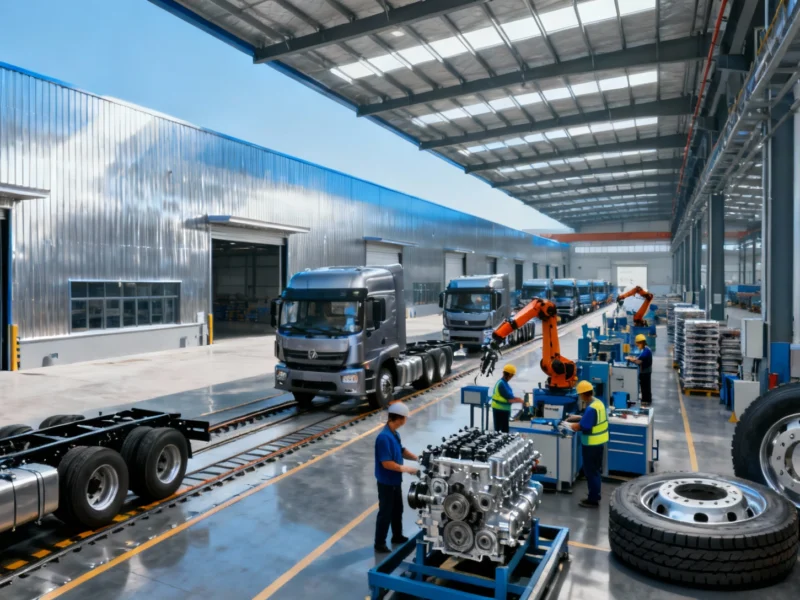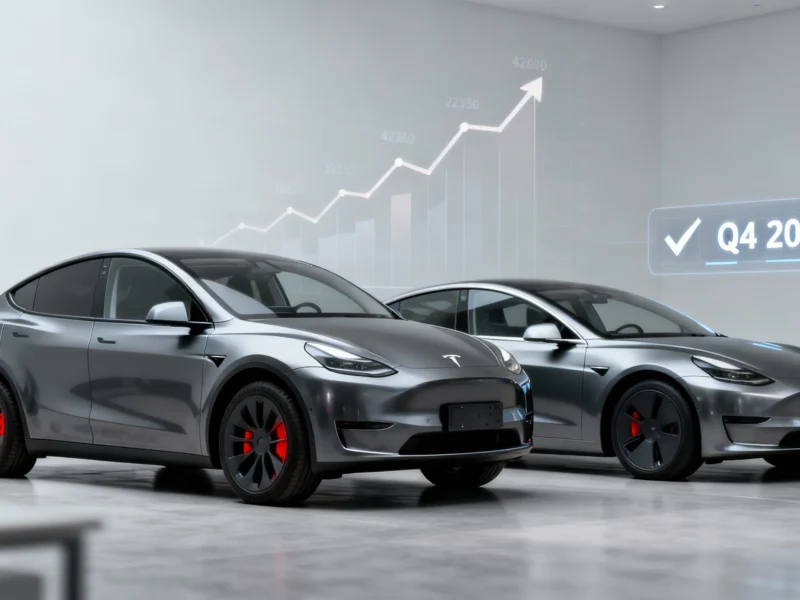Strategic Expansion into Asian Markets
Swedish truck manufacturer Scania, owned by Volkswagen Group, has launched its first fully-owned production facility in China, according to reports from Reuters. The new manufacturing hub, located in Rugao within Jiangsu province, represents what company executives describe as a strategic hedge against global trade uncertainty while positioning the company for stronger presence across Asian markets.
Production Capabilities and Regional Focus
The factory will initially produce Scania’s advanced “Super” trucks specifically for customers in China and the broader Asian region, the report states. Christian Levin, Scania’s chief executive, explained that “by getting the factory here we can start to operate the way we do in Europe or the way we do in Latin America, where we have big industrial hubs, meaning customers get both tailor-made product and short lead time.” This approach contrasts with the previous method of shipping standard trucks from the company’s European production base, which resulted in longer delivery times for Asian customers.
Substantial Investment and Employment Impact
Sources indicate the project involves a substantial €2 billion investment (approximately $2.3 billion) and will initially employ 3,000 workers. When operating at full capacity alongside Scania’s facilities in Sweden and Brazil, the new Chinese plant will contribute to a total production capacity of 50,000 vehicles annually. This represents nearly double the output of the Brazilian facility last year, according to the report.
Trade Agreement Advantages
Analysts suggest part of Scania’s manufacturing calculation involves China’s network of free trade agreements with various countries. Levin noted that “this factory can probably serve at least as many markets as the European factories under free trade regimes,” while acknowledging ongoing global trade uncertainties as additional motivation for the diversification strategy. The executive emphasized that having a third major manufacturing hub in China significantly increases the company’s operational flexibility amid changing trade dynamics.
Global Trade Context
The expansion comes during a period of heightened trade tensions, with the United States planning to impose 25% tariffs on all medium- and heavy-duty truck imports beginning November 1. Scania’s move aligns with broader industry trends of regionalizing production to mitigate trade disruption risks, according to industry observers. The establishment of this manufacturing hub represents a significant commitment to the Asian market by Scania and reflects confidence in China’s manufacturing ecosystem and trade connectivity.
Broader Industry Implications
The development occurs alongside other significant industrial announcements, including IBM’s advances in hybrid quantum computing, MGM’s withdrawal from New York casino bidding, and Amazon’s nuclear project progression. Meanwhile, financial markets show volatility with gold reaching record prices amid Federal Reserve policy expectations, while environmental concerns persist as CO2 levels hit new highs in 2024. Corporate leadership trends also show CEOs prioritizing technology executives over marketing leadership in innovation initiatives, according to industry analyses. All content is sourced from licensed Reuters materials and other verified news outlets.
This article aggregates information from publicly available sources. All trademarks and copyrights belong to their respective owners.



